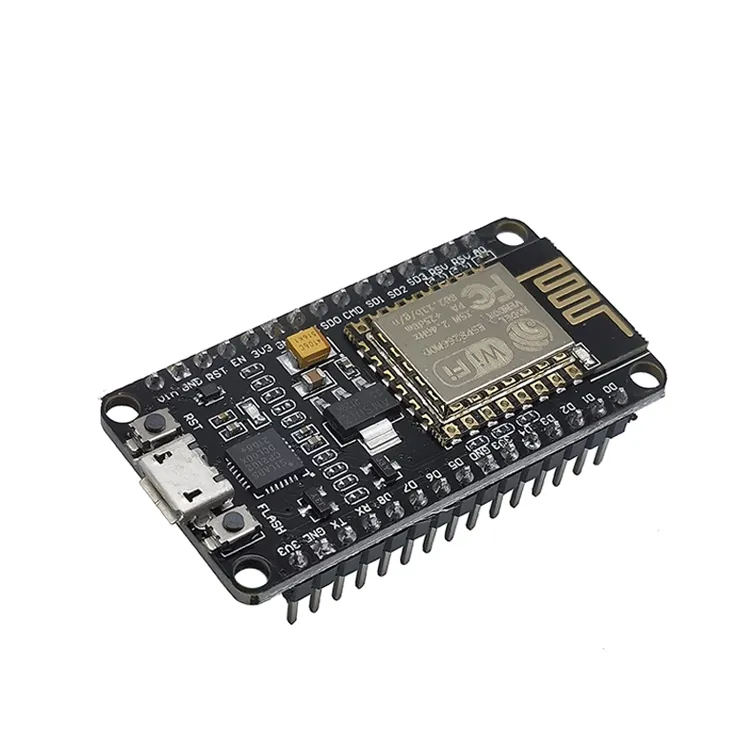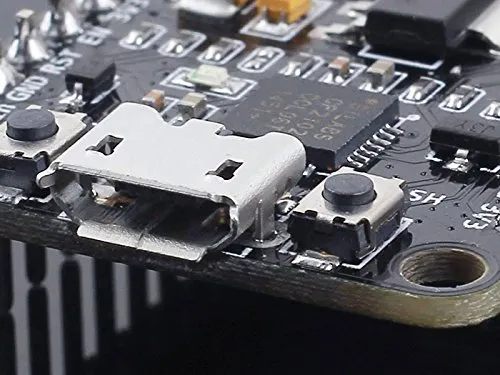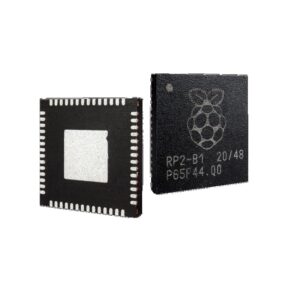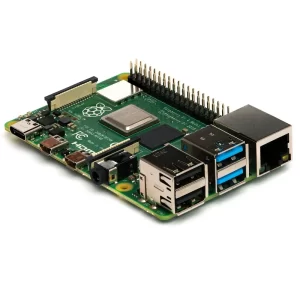NodeMCU CP2102 Board ESP8266
NodeMCU CP2102 The NodeMCU (Node MicroController Unit) is an open-source software and hardware development environment built around an inexpensive System-on-a-Chip (SoC) called the ESP8266
₹292.00 ₹299.00
In NodeMCU CP2102 the NodeMCU (Node MicroController Unit) is an open-source software and hardware development environment built around an inexpensive System-on-a-Chip (SoC) called the ESP8266. The ESP8266 contains the crucial elements of a computer: CPU, RAM, networking (WiFi), and even a modern operating system and SDK. That makes it an excellent choice for the Internet of Things (IoT) projects of all kinds.
However, as a chip, the ESP8266 is also hard to access and use. You must solder wires, with the appropriate analog voltage, to its pins for the simplest tasks such as powering it on or sending a keystroke to the “computer” on the chip. You also have to program it in low-level machine instructions that can be interpreted by the chip hardware. This level of integration is not a problem using the ESP8266 as an embedded controller chip in mass-produced electronics. It is a huge burden for hobbyists, hackers, or students who want to experiment with it in their own IoT projects.
Specifications:
The NodeMCU is available in various package styles. Common to all the designs is the base ESP8266 core. Designs based on the architecture have maintained the standard 30-pin layout. Some designs use the more common narrow (0.9″) footprint, while others use a wide (1.1″) footprint – an important consideration to be aware of.
- 80 to 160 MHz Clock Freq.
- 128kB internal RAM
- 4MB external flash
- 802.11b/g/n Wi-Fi transceiver
| Operating Voltage | 5V | ||
| Flash Memory | 4Mb | ||
| Processor speed | 80-160MHz | ||
| RAM | 32K + 80K | ||
| GPIOs | 16 | ||
| ADC | 1, 10-bit |
Power Requirement
- Operating Voltage: 2.5V to 3.6V
- On-board 3.3V 600mA regulator
- 80mA Operating Current
- 20 µA during Sleep Mode
PACKAGE CONTENTS
1×NodeMCU ESP8266 Development Board
Based on 0 reviews
Only logged in customers who have purchased this product may leave a review.


















There are no reviews yet.